Home built helicopter for sale: Helicopters have long captured the imagination of aviation enthusiasts and hobbyists alike.
With advancements in technology and resources, the dream of owning a helicopter is no longer reserved for the wealthy or professional pilots.
Contents
Homebuilt helicopters have emerged as a popular segment within the aviation community, combining the thrill of flying with the achievement of constructing one’s own aircraft.
In this comprehensive guide, we delve into the world of home built helicopters for sale, providing you with in-depth knowledge and essential advice to navigate this exciting venture.
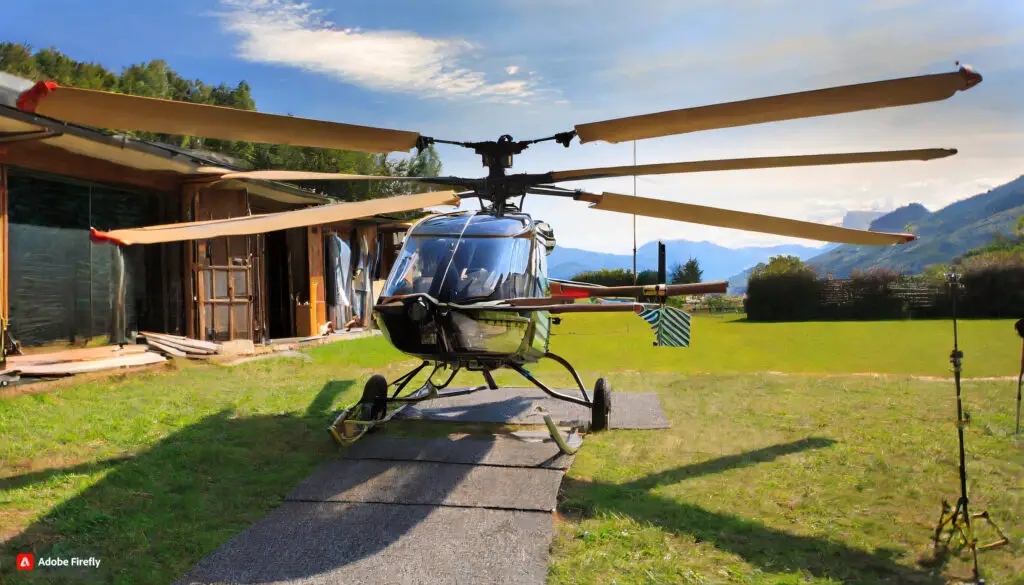
Home Built Helicopter for Sale
When embarking on the journey to purchase a home built helicopter, prospective buyers are entering a niche but increasingly popular market within the aviation community.
These bespoke flying machines, often categorized as experimental aircraft or amateur-built aircraft, offer a unique blend of customization and personal accomplishment.
Models like the self-assembled Rotorway helicopter or the compact Mosquito helicopter have become synonymous with the homebuilt category, each providing its own set of features and performance attributes.
For sale listings might include a variety of helicopter kits, from ultralight designs that skirt the edge of requiring a pilot’s license, to more complex light sport aircraft that necessitate full certification.
Check Available Home Built Helicopter For Sale
Regardless of the type, it’s essential for buyers to perform due diligence in assessing the helicopter’s construction quality, maintenance history, and adherence to aviation regulations.
The allure of a home cockpit simulator, the thrill of helicopter pilot training, and the pride of helicopter ownership are within reach.
With the right preparation, knowledge of helicopter mechanics, and an understanding of helicopter aerodynamics and physics, enthusiasts can find a home built helicopter for sale that aligns with both their dreams and capabilities.
Below is a table illustrating a selection of popular helicopter brands that are frequently available for sale in the used helicopter market, along with a general price range for each.
Please note that the prices are approximate and can vary significantly based on the year of manufacture, condition, flight hours, maintenance history, and included equipment or upgrades.
| Helicopter BrandModel ExamplesApproximate Price Range | ||
|---|---|---|
| Robinson | R22, R44, R66 | $100,000 – $900,000 |
| Bell | Bell 206, Bell 407, Bell 429 | $250,000 – $3,000,000+ |
| Eurocopter (Airbus) | AS350, EC120, EC130 | $500,000 – $3,500,000+ |
| Sikorsky | S-76, UH-60 Black Hawk | $1,500,000 – $6,000,000+ |
| AgustaWestland (Leonardo) | AW109, AW139 | $1,500,000 – $12,000,000+ |
| Hughes | Hughes 300, Hughes 500 | $150,000 – $800,000 |
| Enstrom | Enstrom 280, Enstrom 480 | $200,000 – $1,000,000 |
| MD Helicopters | MD 500, MD 600 | $400,000 – $2,500,000 |
| Guimbal | Cabri G2 | $250,000 – $400,000 |
| Schweizer | Schweizer 300C, Schweizer 333 | $150,000 – $600,000 |
| Airbus | H125, H130, H145 | $1,000,000 – $9,000,000+ |
| Rotorway | Rotorway Exec 162F | $50,000 – $150,000 |
| Mosquito | Mosquito XE, Mosquito Air | $30,000 – $55,000 |
Remember that specific models could be modified with advanced avionics, luxury interiors, or performance kits which can also influence the final asking price.
Additionally, prices are subject to change over time and are influenced by market demand, economic conditions, and technological advancements.
Always consult with a qualified helicopter appraiser or dealer to get the most accurate and current pricing for used helicopters.
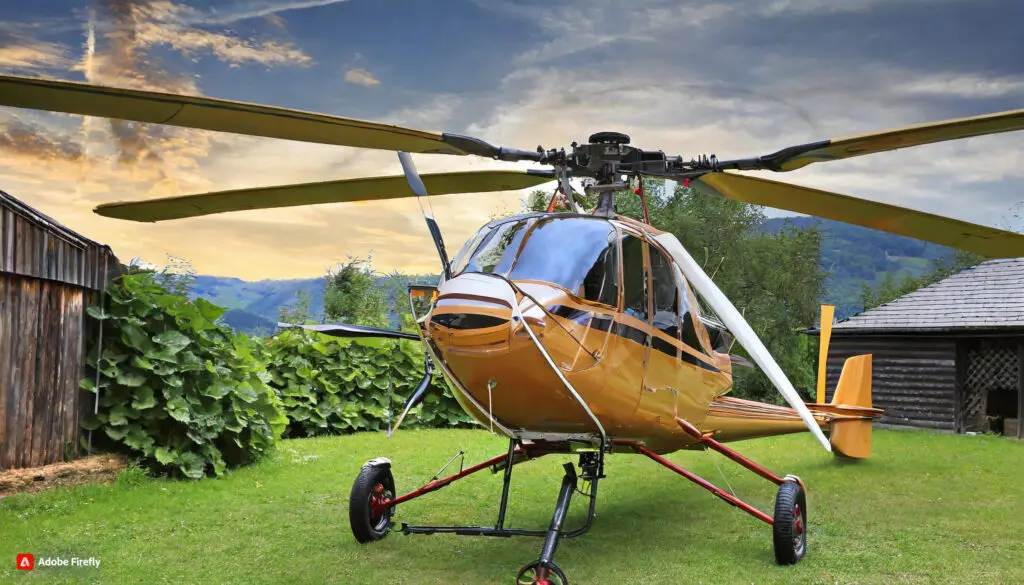
What Are Homebuilt Helicopters?
Homebuilt helicopters, also known as kit helicopters or amateur-built aircraft, are rotary-wing aircraft assembled by individuals rather than manufactured by traditional aerospace companies.
These helicopters are typically constructed from kits that include all the necessary parts, plans, and sometimes even tools.
They range from minimalist ultralight helicopters, which require no pilot’s license in the US under Part 103, to more complex kit helicopters that must adhere to the Federal Aviation Administration’s (FAA) experimental aircraft regulations.
| Home Built Helicopter Brand | Key Benefits | Interest Level |
|---|---|---|
| Rotorway | – Well-documented build process – Strong community support | High |
| Mosquito | – Affordable entry-level option – Compact and lightweight | Moderate to High |
| Safari | – Robust construction – Good performance characteristics | Moderate |
| Gyrocopter | – Stability and ease of flight – Lower regulatory hurdles | Moderate |
| Ultralight Helicopters | – Minimal regulatory requirements – Often cost-effective | Moderate to High |
| Kitfox | – Versatile and can be used on various terrains – High customizability | Low to Moderate |
| Helicycle | – Single-seat turbine experience – Compact design | Low to Moderate |
| Exec 162F | – Reliable aircraft with good support – Proven design | High |
The interest level column reflects the general demand within the homebuilt aircraft community, where certain brands, like Rotorway and Mosquito, have a high level of interest due to their affordability, widespread use, and strong user communities.
Other brands, like Kitfox and Helicycle, while offering unique benefits, may have a more specialized appeal or less visibility in the market, resulting in a varied interest level.
It’s important to note that the interest level can change over time as new models are introduced and as the community’s preferences evolve.
Reasons for Buying a Home Built Helicopter
Purchasing a homebuilt helicopter comes with a unique set of motivations:
- Customization: You can tailor every aspect of the helicopter to your preferences, from the choice of engine to the paint scheme.
- Cost-efficiency: Owning a homebuilt helicopter is generally less expensive than buying a commercial model, making helicopter ownership accessible to a broader audience.
- Personal Achievement: The process of building and successfully flying your own helicopter is a rewarding experience that is unparalleled in the aviation community.
| Reason for Purchase | Details |
|---|---|
| Cost Savings | Building a helicopter can be significantly less expensive than purchasing a new commercially-produced aircraft. |
| Customization Opportunities | Homebuilt kits allow for personalization in design, features, and specifications to meet individual preferences. |
| Educational Experience | The building process provides a deep understanding of aviation mechanics and engineering principles. |
| Pride of Ownership | There is a unique sense of accomplishment that comes from flying an aircraft that you have personally constructed. |
| Aviation Community | Joining a community of like-minded aviation enthusiasts who share knowledge, experiences, and camaraderie. |
| Regulatory Flexibility | Homebuilt aircraft regulations may offer more flexibility compared to commercial aircraft, especially in modifications. |
| Technology Access | The ability to integrate the latest technology and advancements into your aircraft as desired. |
| Potential for Increased Resale Value | A well-constructed and maintained homebuilt helicopter can retain or even increase its value over time. |
| Personal Challenge | The process of building an aircraft can be a fulfilling personal challenge and a testament to one’s dedication and skill. |
| Recreational Enjoyment | Provides the ultimate personal freedom to enjoy recreational flying on one’s own terms. |
| Skill Development | Enhances technical skills in assembly, maintenance, troubleshooting, and upgrades. |
| Aviation Passion | Fulfilling a lifelong dream of flight and aircraft ownership, driven by a passion for aviation. |
Legal Requirements and Aviation Regulations
Before considering a home built helicopter for sale, it’s crucial to understand the legal landscape. In the United States, the FAA categorizes these aircraft as Experimental Amateur-Built (E-AB).
Which requires builders to engage in the majority of the construction. Upon completion, your helicopter must pass an FAA inspection to receive an airworthiness certificate.
Pilots must also hold the appropriate license, which usually is a Private Pilot or Sport Pilot certificate, with a rotorcraft rating.
Key Considerations Before Making a Purchase
When contemplating the purchase of a homebuilt helicopter, assess the following:
- Skill Level: Gauge your technical ability and willingness to learn the complexities of helicopter assembly and maintenance.
- Knowledge of Helicopter Physics: A solid understanding of helicopter aerodynamics is essential for safe operation.
- Training Requirements: Ensure you have access to proper helicopter training and mechanics courses necessary for safe flight.
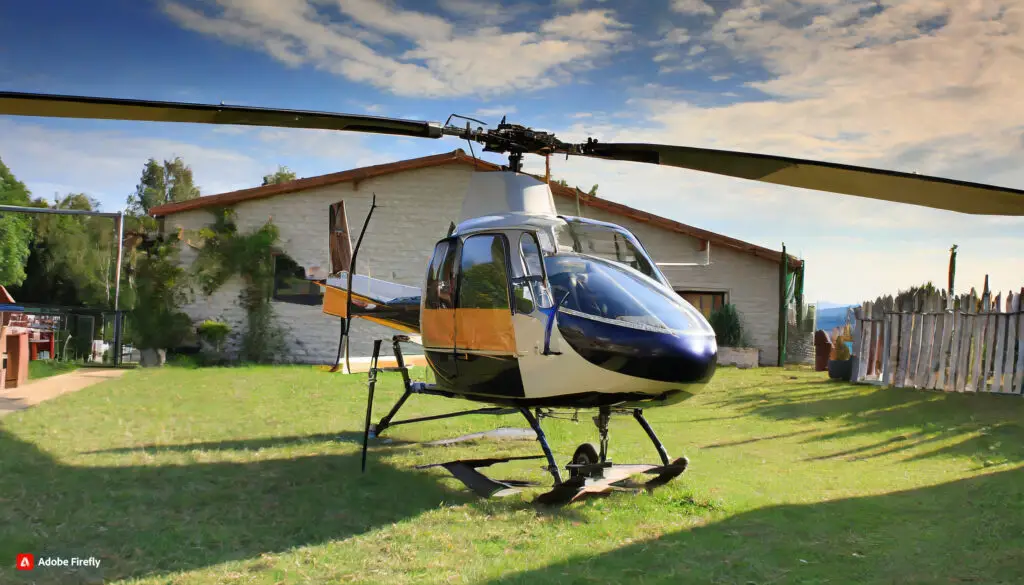
Types of Homebuilt Helicopters Available for Sale
There is a wide variety of home built helicopters available, including:
- Rotorway Helicopter: Known for its reliability and community support.
- Mosquito Helicopter: A popular ultralight single-seater that offers a cost-effective entry into helicopter flying.
- Gyrocopters: Not true helicopters, but rather rotorcraft that use a free-spinning rotor for lift and a propeller for forward thrust.
- Ultralight Aircraft: Lightweight, simple aircraft that often do not require a pilot’s license to fly under specific conditions.
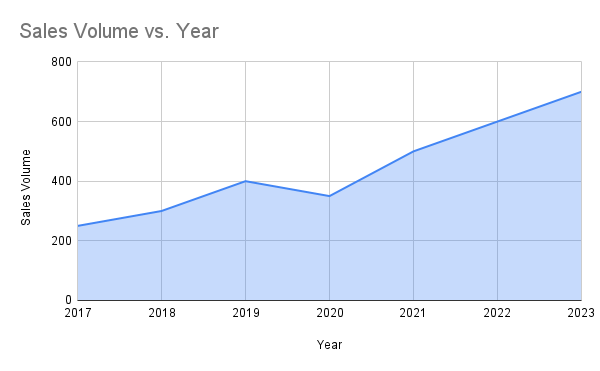
The graph above shows the numbers or volume of homebuilt helicopter kits purchase across 7 years starting from 2017 to 2023 respectively.
Essential Components of a Home Built Helicopter
A homebuilt helicopter comprises several critical systems:
- Engine Types: Choices range from the robust Lycoming engines to smaller, more affordable Franklin engines.
- Controls: Pilots manipulate flight through the collective and cyclic controls, with vital components such as the tail rotor and main rotor playing a crucial role.
- Rotor Systems: The type of rotor system, whether a fixed pitch rotor or a fully articulated rotor, affects handling and performance characteristics.
The Buying Process
When looking for a home built helicopter for sale, follow these steps:
- Research: Identify reputable sources and forums where homebuilt helicopters are listed.
- Condition Assessment: Evaluate the aircraft’s condition, including its maintenance history and hours flown.
- Inspection: Enlist the help of an experienced mechanic to conduct a thorough pre-purchase inspection.
Cost Analysis
Owning a homebuilt helicopter involves various expenses:
- Purchase Price: This can vary widely depending on the model and condition of the helicopter.
- Operating Costs: Fuel, maintenance, hangar fees, and insurance should be accounted for in the overall budget.
- Financing: Some lenders specialize in loans for experimental aircraft, including homebuilt helicopters.
Building Your Own Helicopter from a Kit
For those inclined to build rather than buy, consider these factors:
- Kit Selection: Choose a kit that aligns with your budget, skill level, and desired helicopter characteristics.
- Assembly Process: Building a helicopter requires patience, precision, and often hundreds of hours of work.
- Support Resources: Leverage the knowledge of the homebuilt helicopter community through online forums, workshops, and builder assistance programs.
Training and Safety
Proper training is non-negotiable for helicopter pilots:
- Training Essentials: Seek qualified instructors who can provide comprehensive flight training, including emergency procedures like autorotation.
- Safety Practices: Conduct regular hover checks, understand the signs of vortex ring state, and practice maneuvers to avoid retreating blade stall.
Maintenance and Upkeep
Maintaining a homebuilt helicopter is ongoing:
- Preflight Checks: Develop a preflight routine that includes checking for any loose parts, leaks, or signs of wear.
- Part Sourcing: Know where to procure quality parts and components for repairs and replacements.
- Long-term Care: Regular engine maintenance and attention to the transmission and gearbox will extend the life of your helicopter.
Enhancements and Upgrades
Upgrading a homebuilt helicopter can improve performance and safety:
- Avionics Upgrades: Modern avionics can enhance navigational capabilities and situational awareness.
- Rotor Blade Upgrades: Consider the benefits of upgrading to composite rotor blades for better performance and durability.
Legalities and Insurance
Insuring your homebuilt helicopter is critical for protecting your investment and ensuring compliance with regulations. Shop around to find the best coverage that suits your needs and budget.
The Community and Support for Homebuilt Helicopter Enthusiasts
Joining a community of like-minded enthusiasts offers numerous benefits:
- Networking: Connect with experienced builders and pilots who can offer advice and support.
- Shared Experiences: Learn from the successes and challenges of others in the homebuilt helicopter community.
Success Stories and Case Studies
Exploring case studies of successful homebuilt helicopter projects can provide motivation and practical insights into the building and flying process.

Conclusion
Owning a homebuilt helicopter is an extraordinary journey that combines technical skill, dedication, and the joy of flight.
As you consider a home built helicopter for sale, remember that the process is as much about the adventure as it is about the destination.
Whether you decide to buy or build, the world of homebuilt helicopters offers an unparalleled opportunity to soar the skies in a machine that is truly your own.
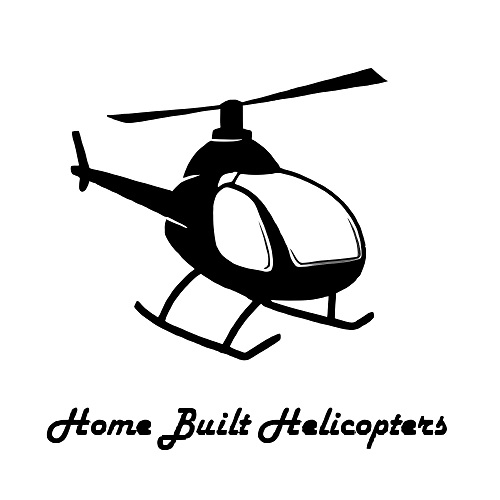
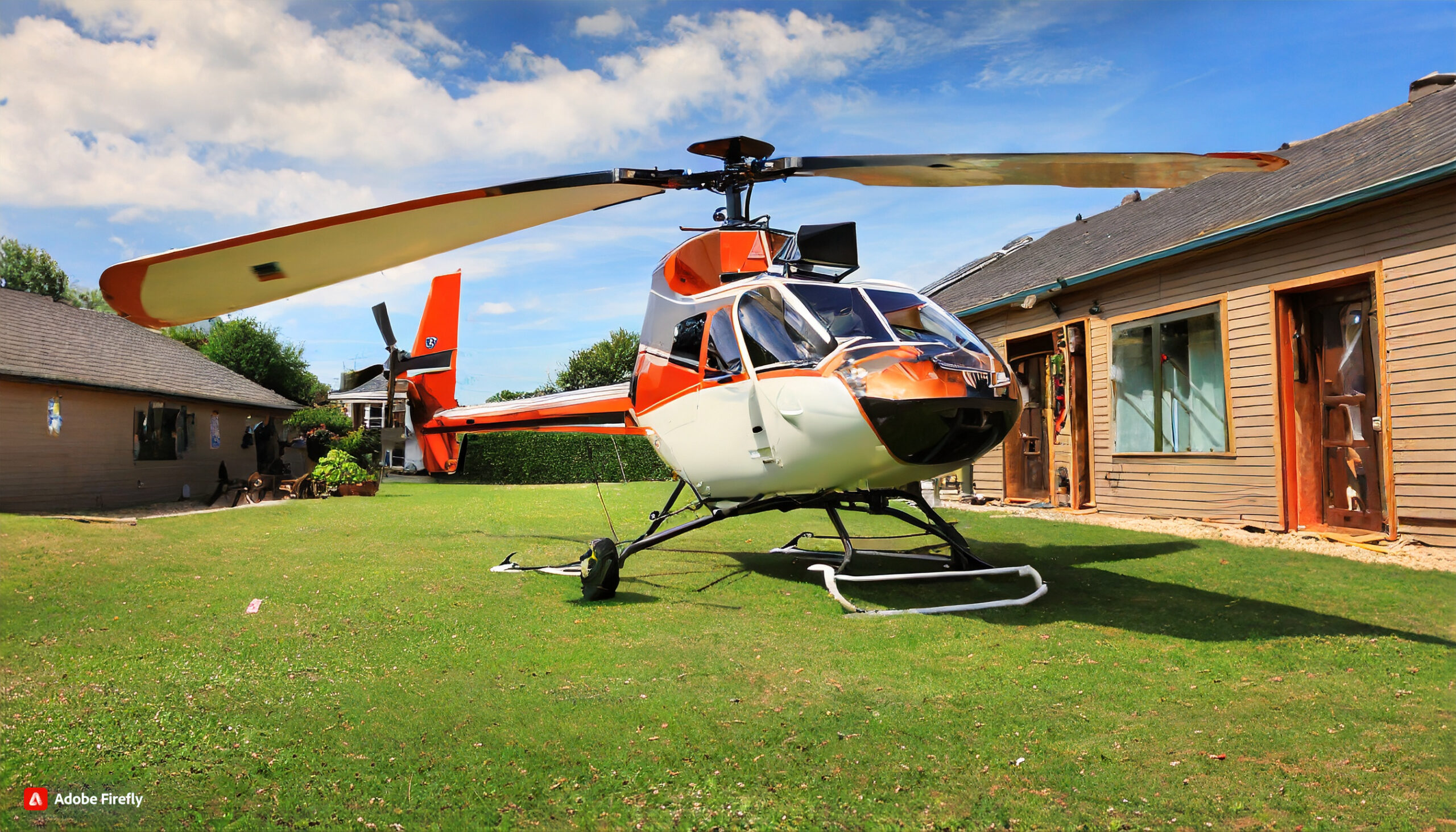
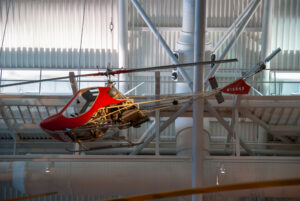
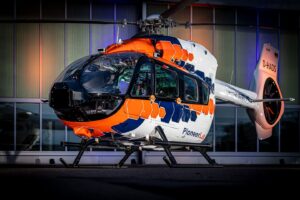


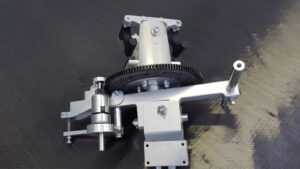
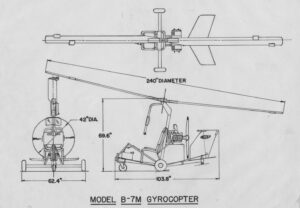
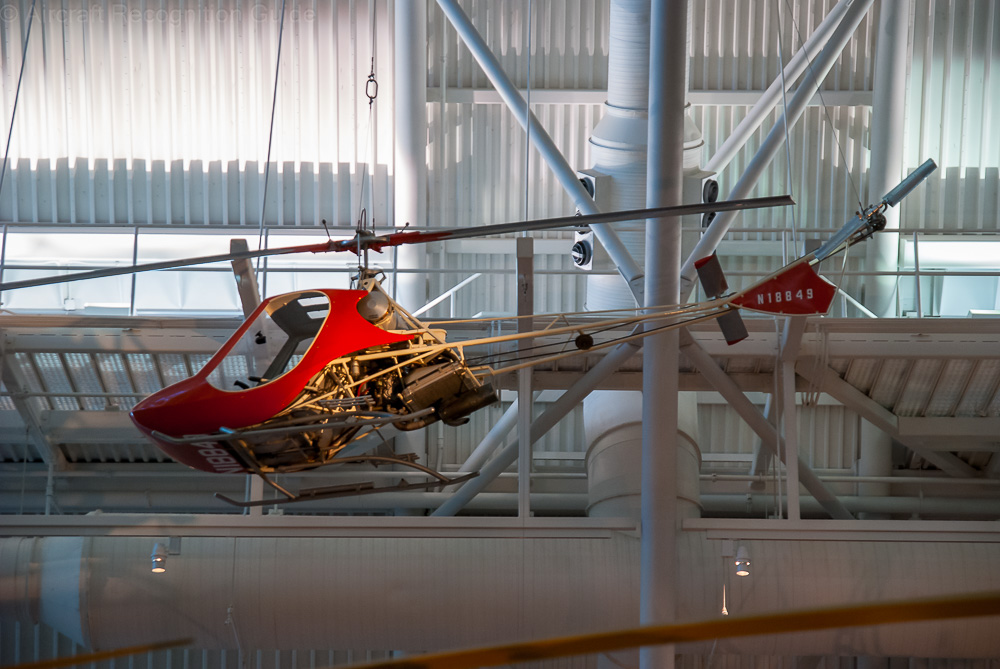


Leave a Reply